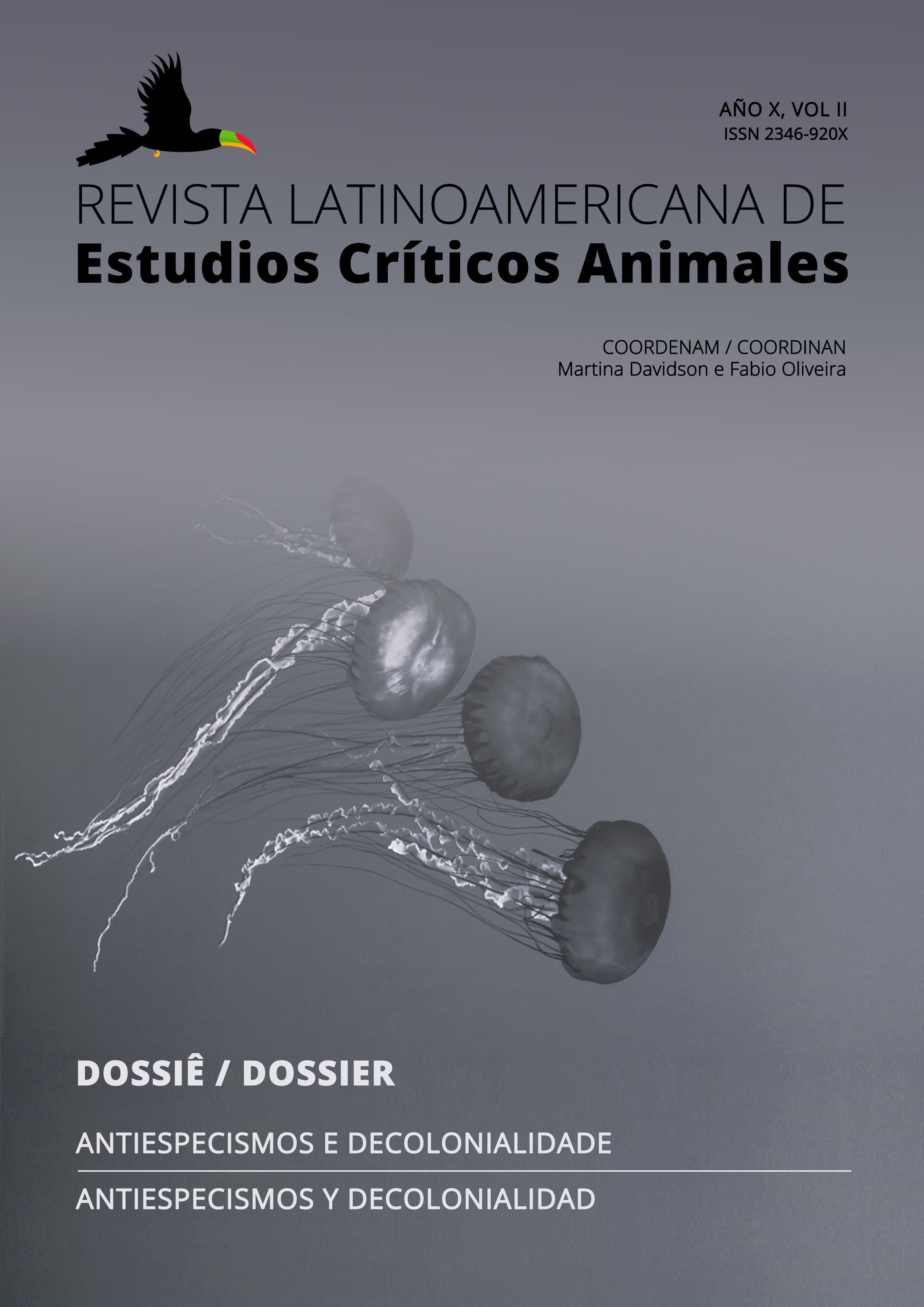La animalidad y la decolonización del pensamiento: más allá del etnocentrismo
Abstract
The most important question we are trying to elucidate is not so much how similar or how different we are from other forms of life, which, at least in this context, is not the most important thing. Rather, it is a question of understanding the reason for this suffocating need; how it is that the human has the continuous need to define itself as distinct from the animal, expelling as a residue of inhuman instinct everything in it that refers to that world, the world of bodies and lives.
References
Cimatti, F. (2013). Filosofia dell’animalità. Editori Laterza, Bari.
Cimatti, F. (2021). Il postanimale. La natura dopo l’Antropocene. DeriveApprodi, Roma.
Descola, P. (2021). Oltre natura e cultura. Raffaello Cortina Editore, Milán.
Ferdinand, M. (2019). Une écologie décoloniale, Seuil, París.
Nietzsche, F. (2017). La filosofia nell’epoca tragica dei Greci. Adelphi, Milán.
Nietzsche, F. (1977). La gaia scienza e Idilli di Messina. Adelphi, Milán.
Nietzsche, F. (1979). Umano, troppo umano. Un libro per spiriti liberi. Vol. II, Adelphi, Milán.
Tsing, A. L.(2021). Il fungo alla fine del mondo. La possibilità di vivere nelle rovine del capitalismo. Keller Editore, Rovereto.
Wittgenstein, L. (1975). Note sul “Ramo d’oro” di Frazer. Adelphi, Milán.
Wittgenstein, L. (2014). Ricerche filosofiche. Einaudi, Torino.
Downloads
Published
Issue
Section
License
Copyright (c) 2024 Revista Latinoamericana de Estudios Críticos Animales

This work is licensed under a Creative Commons Attribution-NonCommercial-ShareAlike 4.0 International License.
La Revista Latinoamericana de Estudios Críticos Animales con ISSN 2346-920X se adhiere a las diferentes iniciativas que promueven el acceso libre al conocimiento, por lo que todos los contenidos de la misma son de acceso libre y gratuito y publicados bajo la licencia Creative Commons, que permite su difusión pero impide la alteración de la obra e incluye siempre mención al autor/a y fuente.
Es decir, una licencia de tipo Atribución-NoComercial-SinObraDerivada.
Por ello, los correos electrónicos de los autores se encontrarán a disposición de los lectores, en caso de que deseen contactarlos personalmente.




